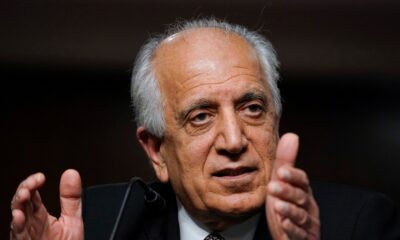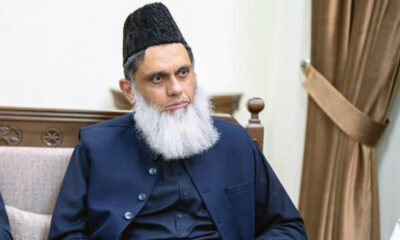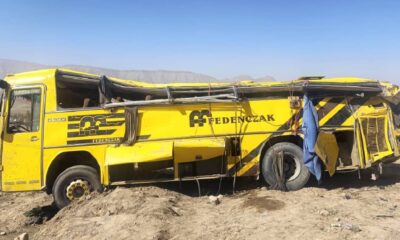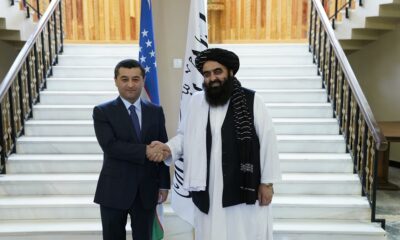Business
World Bank works to redirect frozen funds for humanitarian aid only

The World Bank is finalizing a proposal to deliver up to $500 million from a frozen Afghanistan aid fund to humanitarian agencies, people familiar with the plans told Reuters, but it leaves out tens of thousands of public sector workers and remains complicated by U.S. sanctions.
Board members will meet informally on Tuesday to discuss the proposal, hammered out in recent weeks with U.S. and U.N. officials, to redirect the funds from the Afghanistan Reconstruction Trust Fund (ARTF), which has a total of $1.5 billion, Reuters reported.
Afghanistan’s 39 million people face a collapsing economy, a winter of food shortages and growing poverty three months after the the former government collapsed.
Afghan experts said the aid will help, but big gaps remain, including how to get the funds into Afghanistan without exposing the financial institutions involved to U.S. sanctions, and the lack of focus on state workers, the sources said.
The money will go mainly to addressing urgent health care needs in Afghanistan, where less than 7% of the population has been vaccinated against the coronavirus, they said.
For now, it will not cover salaries for teachers and other government workers, a policy that the experts say could hasten the collapse of Afghanistan’s public education, healthcare and social services systems.
They warn that hundreds of thousands of workers, who have been unpaid for months, could stop showing up for their jobs and join a massive exodus from the country.
The World Bank will have no oversight of the funds once transferred into Afghanistan, said one of the sources familiar with the plans. A U.S. official stressed that UNICEF and other recipient agencies would have “their own controls and policies in place.”
“The proposal calls for the World Bank to transfer the money to the U.N. and other humanitarian agencies, without any oversight or reporting, but it says nothing about the financial sector, or how the money will get into the country,” the source said, calling U.S. sanctions a major constraint.
While the U.S. Treasury has provided “comfort letters” assuring banks that they can process humanitarian transactions, concern about sanctions continues to prevent passage of even basic supplies, including food and medicine, the source added.
“We’re driving the country into the dust,” said the source. Crippling sanctions and failure to take care of public sector workers will “create more refugees, more desperation and more extremism.”
A State Department spokesperson confirmed that Washington is working with the World Bank and other donors on how to use the funds, including potentially paying those who work in “critical positions such as healthcare workers and teachers.”
The spokesperson said the U.S. government remains committed to meeting the critical needs of the Afghan people, “especially across health, nutrition, education, and food security sectors … but international aid is not a silver bullet.”
Established in 2002 and administered by the World Bank, the ARTF was the largest financing source for Afghanistan’s civilian budget, which was more than 70% funded by foreign aid.
The World Bank suspended disbursements after the Islamic Emirate of Afghanistan (IEA) takeover. At the same time, Washington stopped supplying U.S. dollars to the country and joined in freezing some $9 billion in Afghan central bank assets and halting financial assistance.
One major problem is the lack of a mechanism to monitor disbursements of funds in Afghanistan to ensure Taliban leaders and fighters do not access them, a third source said.
Business
Pakistan allows re-export of stranded Afghan transit cargo
The suspension of Afghan Transit Trade operations left thousands of containers stuck, causing heavy financial losses for Afghan traders and disrupting regional commerce.

Pakistan’s Federal Board of Revenue (FBR) has allowed the re-export of Afghan transit trade consignments that had been stranded for months at Chaman and Quetta, enabling their movement to Karachi Port and Port Qasim.
The shipments were halted after crossings between Afghanistan and Pakistan were closed in October 2025 amid escalating security tensions.
The suspension of Afghan Transit Trade operations left thousands of containers stuck, causing heavy financial losses for Afghan traders and disrupting regional commerce.
Under the new directive, stranded goods will be transported under customs supervision to Karachi for re-export. Pakistani authorities said the process will follow strict monitoring and inspection procedures to ensure compliance with transit regulations.
The decision offers limited relief to Afghan businesses affected by the prolonged disruption, though regular trade between the two countries has yet to resume.
Business
Afghanistan’s 2026 Development Framework meeting highlights self-reliance and economic stability
The Ministry said these measures helped preserve relative economic stability and deliver stronger economic growth compared with the previous year.
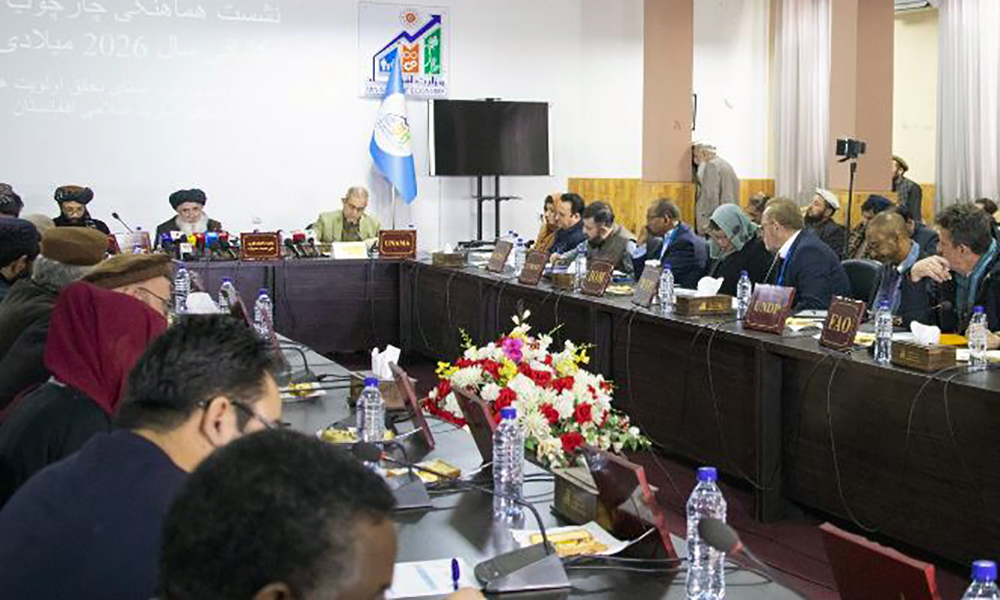
The Ministry of Economy of Afghanistan says a coordination meeting on the United Nations’ 2026 Development Framework for Afghanistan was held under the chairmanship of Qari Din Mohammad Hanif, Minister of Economy, focusing on advancing national development priorities and long-term economic stability.
The meeting was attended by representatives from the Ministry of Foreign Affairs, the United Nations Assistance Mission in Afghanistan (UNAMA), heads of UN agencies operating in the country, delegates from the European Union, and a range of international organizations.
During the session, the Minister of Economy outlined Afghanistan’s current situation, recent achievements, and key economic priorities, while expressing appreciation for the continued support of international partners during challenging years.
According to the Ministry, Afghanistan faced severe economic, social, and climate-related pressures in 2025.
These included the impacts of climate change and natural disasters, the forced return of more than two million Afghan migrants from neighboring countries, ongoing sanctions, frozen foreign reserves, and a sharp decline in development and humanitarian assistance. Together, these factors have significantly affected the livelihoods of vulnerable communities.
Despite these challenges, the Islamic Emirate has implemented a series of economic and development programs centered on prudent policymaking and national priorities.
The Ministry said these measures helped preserve relative economic stability and deliver stronger economic growth compared with the previous year.
Improved economic governance, support for domestic production and the private sector, exchange rate stability, export growth, national infrastructure projects, inflation control, and increased domestic revenues were cited as key contributors.
The Ministry also highlighted the role of the United Nations in addressing urgent humanitarian needs, noting that UN assistance has been critical in responding to climate impacts, supporting migrants and returnees, strengthening food security and livelihoods, delivering basic health services, and reducing overall human suffering.
Data from the Ministry of Economy show that around $1.009 billion in international assistance was allocated to Afghanistan in 2025 across various sectors, with approximately $590 million earmarked for project expenditures. However, figures from the UN Office for the Coordination of Humanitarian Affairs indicate a significant drop in humanitarian funding, with only 36 percent of the $2.4 billion required having been secured.
The Ministry emphasized that sustainable economic stability can only be achieved through self-reliance, growth-driven economic policies, and constructive engagement with the international community.
Afghanistan’s Development Strategy, a long-term framework developed under the leadership of the Economic Deputy of the Prime Minister and coordinated by the Ministry of Economy, aims to promote balanced development, job creation, poverty reduction, infrastructure expansion, private sector support, and environmental protection.
Business
Afghan delegation visits Belarus to strengthen economic and industrial ties
The delegation also visited major state and industrial enterprises, including, the State Chemical Service, and agricultural farms under the Ministry of Agriculture.
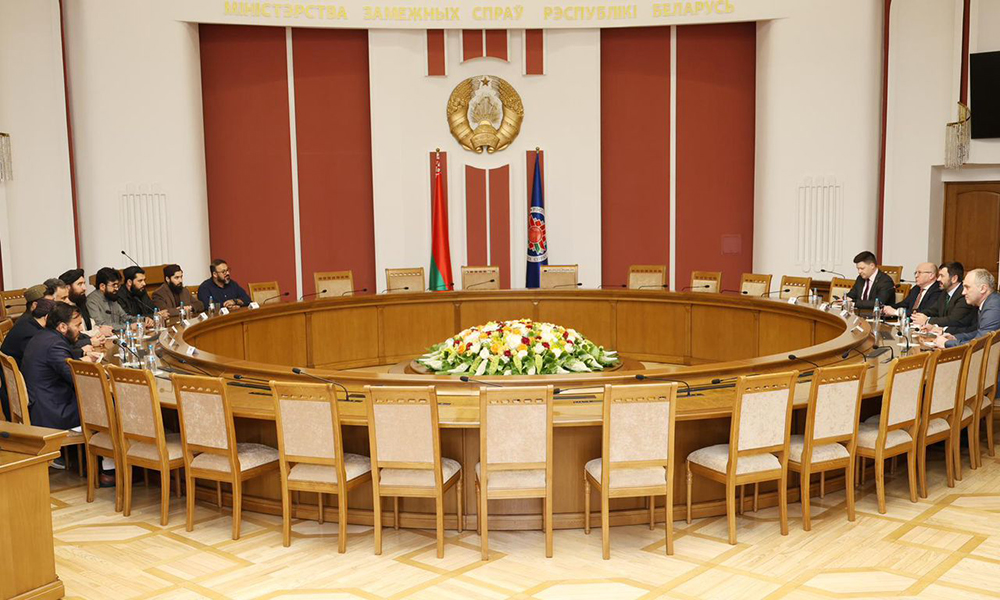
A high-level delegation from the Islamic Emirate of Afghanistan, led by Ahmad Jan Balal, head of the Emirati Companies, and Abdul Rahman Atash, CEO of the National Development Company, accompanied by representatives from the Ministry of Foreign Affairs and technical teams, visited Belarus to advance bilateral cooperation.
According to Nabiullah Arghandiwal, spokesperson for the National Development Company, the Afghan delegation held meetings with officials from Belarus’ Ministries of Foreign Affairs, Agriculture, and Industry to discuss political, economic, and trade-related issues.
The delegation also visited major state and industrial enterprises, including, the State Chemical Service, and agricultural farms under the Ministry of Agriculture.
Arghandiwal added that both sides agreed to strengthen and expand technical collaboration in the fields of industry, agricultural machinery, construction materials, food safety, public health, and education, aiming to enhance long-term economic and industrial partnerships between the two nations.
give me english hashtags with coma in between the words
-

 Latest News5 days ago
Latest News5 days agoAfghanistan’s Chief of Armed Forces underscores readiness and equipment for national defense
-
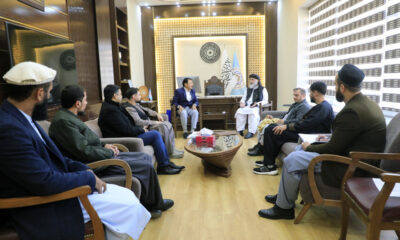
 Latest News4 days ago
Latest News4 days agoAfghanistan welcomes investment and technology partnerships with India
-

 Sport4 days ago
Sport4 days agoAfghan Peaks founder climbs Aconcagua to promote Afghanistan’s mountain potential
-

 Latest News3 days ago
Latest News3 days agoIndian customs seize Chinese walnuts falsely declared as Afghan
-

 Business4 days ago
Business4 days agoPakistan allows re-export of stranded Afghan transit cargo
-
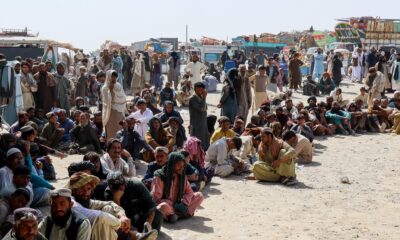
 Latest News3 days ago
Latest News3 days agoPakistan’s Punjab to send home 20 more Afghans in repatriation drive
-

 Latest News4 days ago
Latest News4 days agoPakistan signals possible air strikes as Kabul releases Pakistani soldiers in goodwill move
-
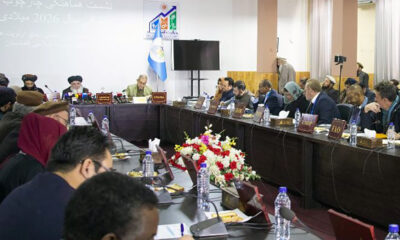
 Business5 days ago
Business5 days agoAfghanistan’s 2026 Development Framework meeting highlights self-reliance and economic stability




